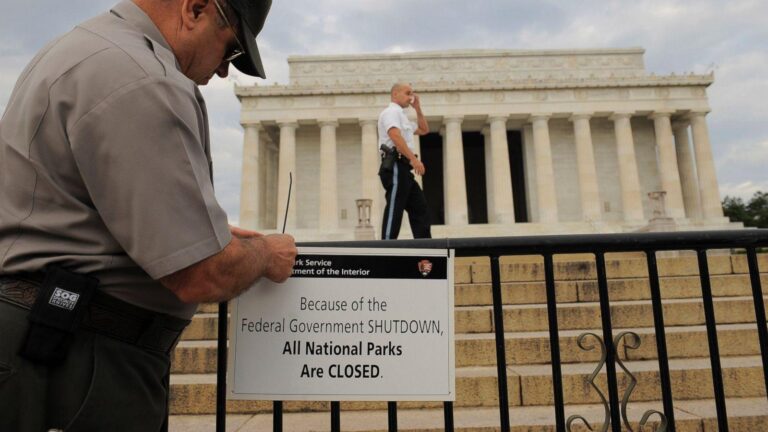As the possibility of a government shutdown looms, questions about which services and agencies would be affected are mounting across the country. A government shutdown occurs when Congress fails to pass funding legislation, forcing many federal operations to halt or scale back. This article explores what typically closes during a shutdown, the essential functions that continue, and what the latest developments indicate about how a potential shutdown would unfold. Drawing on expert analysis and historical precedent, we break down what Americans can expect if federal funding lapses and government activities grind to a halt.
Impact on Federal Agencies and Essential Services During a Shutdown
During a federal shutdown, many government agencies face immediate disruptions, forcing non-essential operations to pause until funding is restored. Critical services, including law enforcement, national security, and air traffic control, continue to operate with minimal impact, as these roles are considered essential. However, agencies like the Environmental Protection Agency, National Park Service, and many research departments often enact furloughs, leaving key programs on hold. This leads to closed national parks, halted grant distributions, and reduced data collection activities critical to public health and safety.
Key agencies affected:
- National Park Service – many parks close, visitor centers shut down
- Food and Drug Administration – limited inspections and delayed approvals
- Federal Housing Administration – processing of new mortgages slows
- IRS – tax processing and customer service largely curtailed
| Agency | Status | Impact |
|---|---|---|
| Federal Aviation Administration | Operational | Air traffic control maintained |
| National Institutes of Health | Furloughed | Research funding paused |
| Social Security Administration | Limited operations | Payment processing continues |
Effects on National Parks and Public Facilities Access
During a government shutdown, access to many national parks and public facilities is significantly impacted, leading to widespread closures and service interruptions. Most visitor centers, campgrounds, and public restrooms within these parks close immediately due to the lack of funding and essential personnel. Without staffing, critical maintenance and safety operations halt, potentially raising safety concerns for any visitors who attempt to access these areas. While some parks remain physically open, they often do so without ranger presence, which means no law enforcement or emergency support is available on-site.
Visitors should be aware of the following typical shutdown effects:
- Park entrances and roads may remain open but without facilities or staff assistance.
- Guided tours, educational programs, and scheduled events are canceled.
- Public facilities such as museums and monuments run by federal agencies close temporarily.
| Facility Type | Status During Shutdown | Visitor Impact |
|---|---|---|
| National Park Campgrounds | Closed | No overnight stays allowed |
| Visitor Centers | Closed | No information or assistance |
| Museums/Monuments | Closed | No public access |
| Park Roads | Open but limited | No maintenance, potential hazards |
How Government Contractors and Employees Are Affected
During a government shutdown, federal employees and contractors find themselves navigating uncertain waters. While essential personnel remain on the job, they do so without pay until a funding agreement is reached, sparking financial and emotional stress. Non-essential employees are typically furloughed, meaning they are sent home without pay, which can disrupt daily routines and place a strain on household incomes. Contract workers often face abrupt work stoppages, as many government contracts are paused or canceled temporarily.
Here is a quick overview of how different groups are impacted:
- Federal Employees: Essential workers remain active but unpaid; non-essential staff face furloughs.
- Government Contractors: Many contracts halted, delaying projects and payments.
- Support Services: Operations like cleaning and maintenance are frequently suspended.
| Category | Impact | Pay Status |
|---|---|---|
| Essential Employees | Must continue working | Delayed pay |
| Non-Essential Employees | Furloughed, no work | No pay until resolution |
| Contractors | Projects paused | Payments delayed |
Steps Citizens Should Take to Prepare and Respond
Citizens should proactively review their financial plans and emergency supplies to mitigate the impact of a government shutdown. Essential steps include conserving cash by limiting non-essential purchases, as many government benefits and services might be delayed. It is also prudent to ensure that prescriptions are filled and to secure important documents, as some offices and agencies could close or operate with limited staff. Keeping informed through reliable news sources and official government channels will help residents navigate the evolving situation and adjust their plans accordingly.
Community support becomes vital during these periods. Citizens can assist one another by sharing resources and information, particularly for vulnerable populations such as seniors and families with young children. Below is a quick reference table outlining key areas to monitor and actions to consider:
| Area | Recommended Action |
|---|---|
| Financial Aid | Confirm status of benefits; withdraw emergency funds |
| Healthcare | Refill prescriptions; check availability of public health services |
| Travel & Transportation | Verify status of permits, TSA screenings, and public transit |
| Community Support | Connect with local relief groups; offer assistance where possible |
In Summary
As the possibility of a government shutdown looms, understanding what services and operations would be affected remains crucial for Americans. From national parks closing their gates to essential agencies scaling back non-essential functions, the ripple effects of a shutdown touch many aspects of daily life. While critical services continue to operate, the uncertainty and disruption underscore the importance of timely legislative action to keep the government running. Stay informed as developments unfold, and be prepared for how a shutdown could impact your community and access to federal resources.




